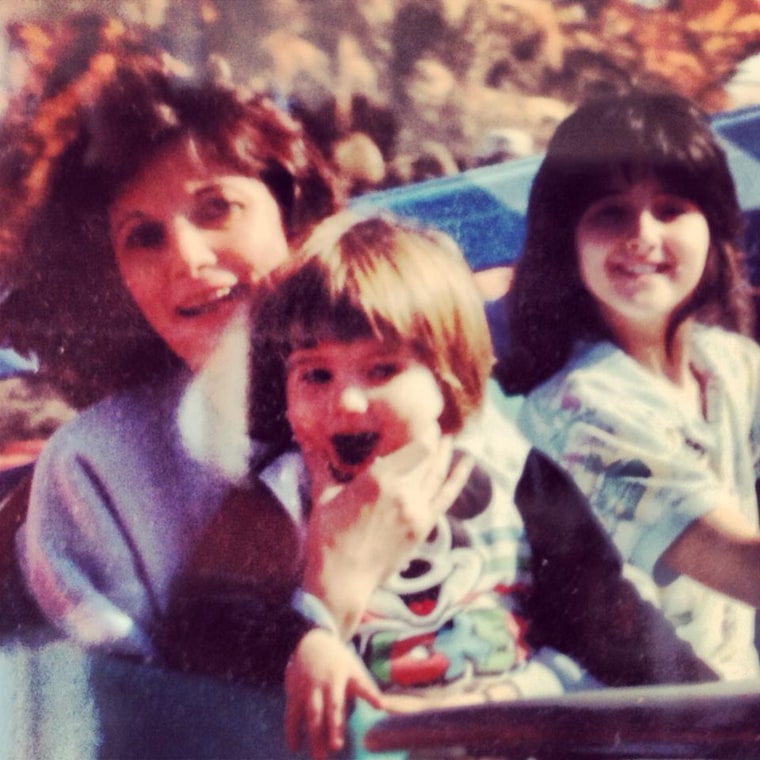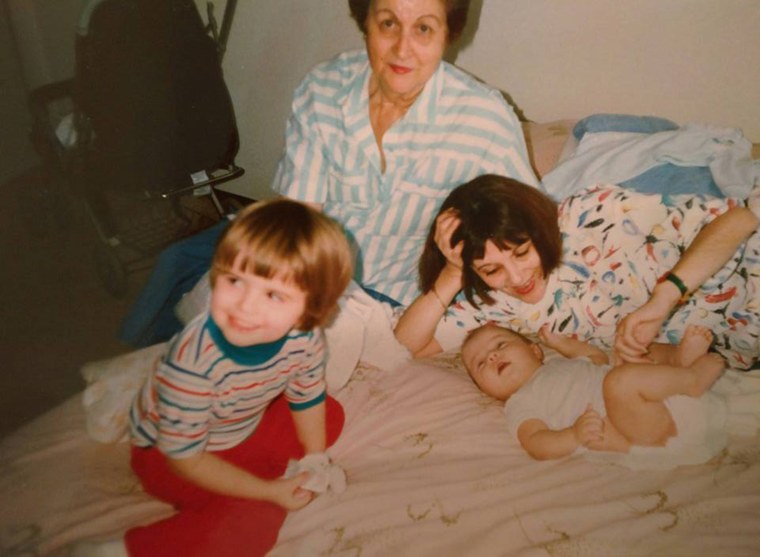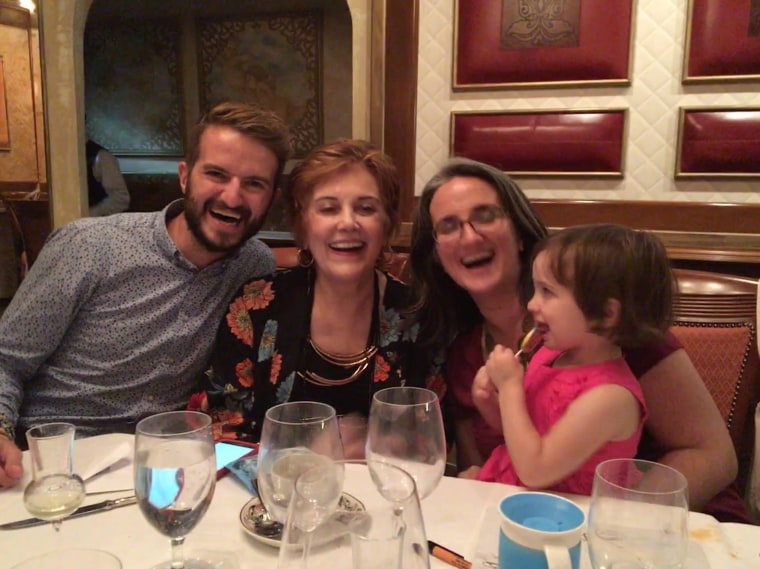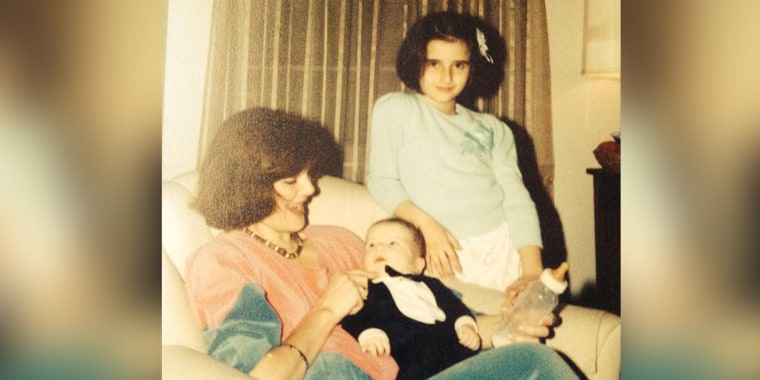I can’t really pinpoint when I found out that my mother had a miscarriage. I’ve just always known.
Growing up, my parents never kept much from me and my sister, who is six years my senior. For the most part, they were open books.
My mother possesses bold opinions, with a brassy way of expressing them. She lived through civil war in Lebanon helping mothers and children as a social worker, and she came to America with the goal of continuing to help people, earning a master's degree in social work from the University of Pennsylvania.
Soon after, she met my father at a party, and they got married and had two children.
But they lost one in the middle.
While I always knew that, I had never actually asked my mother how she felt about it.
I never even had heard of the term rainbow baby until just a few weeks ago, when I was assigned an article about a photographer who staged a rainbow baby shoot with 40 mothers. Hearing their stories made me feel like I belonged to a special group of people.
Recently, my mother came to New York to take care of me after I underwent a surgery. She jumped on the Megabus from Philadelphia and was there by my bed when I woke up so she could take me home from the hospital.
I always was a "Mama's Boy." Starting in childhood, my mother and I have had a deep relationship: It hasn’t always been good, but even when it’s been bad it’s only bad for a little bit, as my mother and I believe in never holding grudges and making up after one sleep.

After my surgery, we sat in my apartment’s garden, recuperating and reminiscing. That’s when I decided to ask my mother about the child she lost before she had me. I wasn’t prepared for how emotional things were about to get.
“I always wanted two children,” she told me. “Your sister was close to 4 years old. We hadn’t been trying for too long, and we got pregnant.”
She found out she was pregnant at eight weeks, and had a miscarriage a few weeks later. “Your sister wanted a fish at the store,” she said. “We were walking in the door, and your sister was holding the goldfish in the plastic bag they use to use. And then I felt something fall in my underwear.”
She ran upstairs and sat on the toilet. “The only thing that comes to me and makes me cry is that my baby got flushed in the toilet,” she said.

At this point, my mom is sobbing a deep, guttural kind of cry. Something I haven’t really seen from her, ever. Sure, I've seen her cry, plenty of times and for plenty of reasons. But this is different. It seems heavier. Maybe it's because this was something she had never really told anybody. Or maybe this was a different kind of pain, one I'd never seen her experience before.
“That’s the only thing that bothers me. That I couldn’t get him out. You know, hun? The whole idea that he went with the sewage, it really hurt me.”
Now I’m crying too. I go to my mother’s side to console her. There’s still a piece of her hurting.
Even though my mother’s miscarriage came up many times during my childhood, I don’t think my mom ever let herself feel this kind of pain in front of us, for the sake of her children. Until now.
I guess that’s what parents do. They hide their pain from the children, no matter how deep or hard it may be.
Sure, my mother seemed "fine" about her miscarriage. But especially as grown-up kids, it may be a responsibility of ours to check in with our parents about the things they have survived. Because when we were kids, they did what they had to do to make sure we didn’t realize the magnitude of their trauma.
But still, parents hurt.
And while my mother uncovered this traumatic memory, she also shared the silver lining that got her through the pain: me.
“I'm sad about the other baby, but I literally wouldn't have had you if that didn’t happen to me,” she told me. “I have you. It might sound cruel against the other baby that I lost, but I have to look at this like I wouldn't have had you if that didn't happen to me. It may sound weird to think that way, but that's what I came up with.”
She said that this idea has surfaced for her often in the last few years.

“Lately, I have been thinking to myself even more, ‘Alex wouldn't be in my life if I didn’t go through that,’” she said. “I try to find the silver lining in everything, and for this, that is you.”
As a reporter, I ask most of my interview subjects what they learned about themselves through an experience. I realized that learning the full story of my mother's miscarriage inspires me to be a better version of myself. Not only to make both my parents proud, but to also uphold the legacy of that baby my parents lost.
Sure, they say a rainbow baby is the rainbow after a storm, but maybe that rainbow is meant to shine through a person for their entire life, continuing to cast a light on the darkness in this world.
“You wouldn’t have been brought into my life if I didn’t go through that, and I am so happy that you were,” my mother said, her tears drying.
“I love my rainbow baby.”
Related video: Mom welcomes rainbow baby while honoring the child she lost
